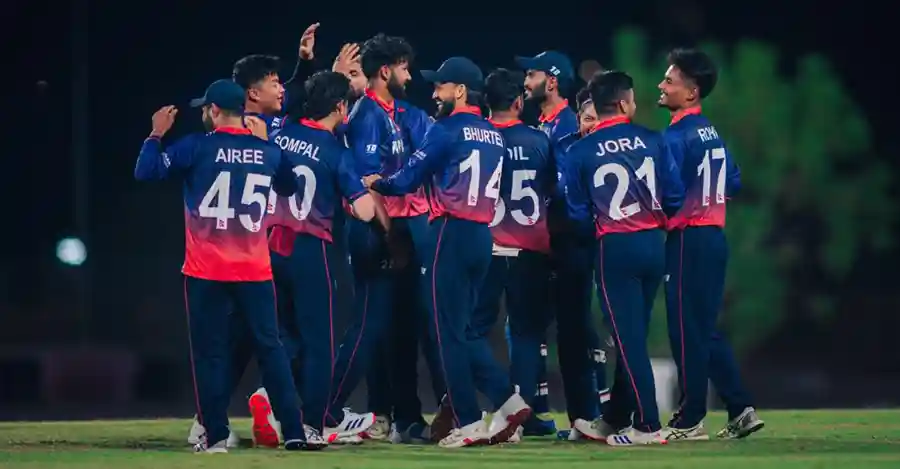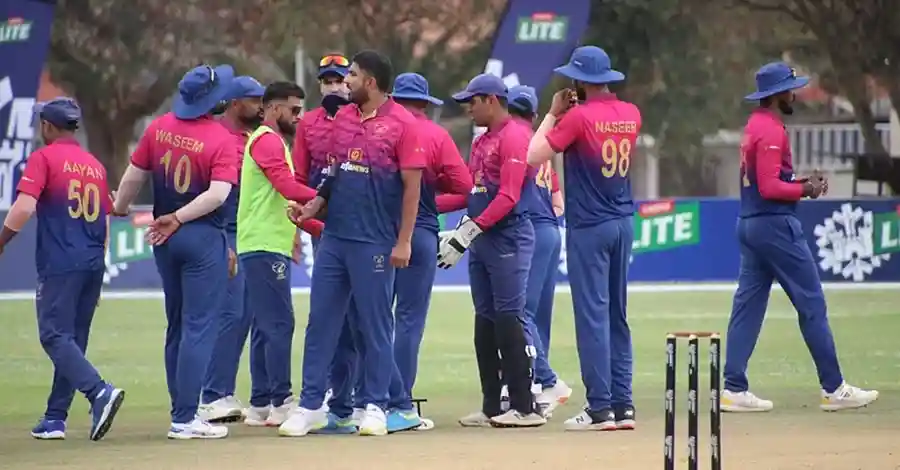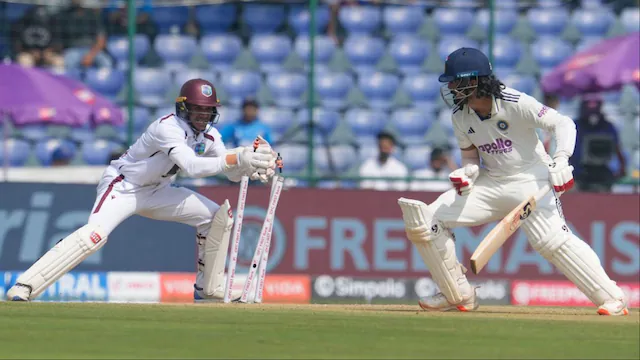The T20 World Cup East Asia Pacific Qualifier 2025 tournament rapidly approaches its climactic conclusion, with four remaining matches determining which team secures the final qualification spot for the prestigious 2026 T20 World Cup. This crucial fixture between the United Arab Emirates and Japan represents a pivotal encounter potentially securing World Cup qualification for either squad, significantly elevating stakes across both cricketing nations.
Four teams currently remain in contention for 2026 T20 World Cup participation: the United Arab Emirates, Japan, Qatar, and Samoa. These nations compete directly against Nepal and Oman, who have already secured guaranteed spots through alternative qualification pathways. The intensive competition culminates with four remaining matches designed to determine which additional team advances toward cricket’s premier international tournament.
The UAE versus Japan matchup emerges as particularly significant, offering both squads realistic pathways toward securing that coveted final qualification position. Muhammad Waseem’s UAE squad enters the fixture riding momentum from strong performances against Samoa, while Japan’s Kendel Kadowaki-Fleming captains an ambitious team seeking to establish themselves as Asia-Pacific cricket powerhouses.
UAE Squad and Playing XI Details for T20 World Cup Qualifier
Complete United Arab Emirates 15-Player Squad Roster
The United Arab Emirates enters this crucial T20 World Cup qualifier fixture with an experienced squad balancing established international veterans with emerging young talent. The complete UAE squad comprises: Alishan Sharafu, Jonathan Figy, Muhammad Waseem (captain), Basil Hameed, Dhruv Parashar, Harshit Kaushik, Muhammad Arfan, Aryansh Sharma (wicketkeeper), Rahul Chopra (wicketkeeper), Haider Ali, Junaid Siddique, Muhammad Farooq, Muhammad Rohid, Simranjeet Singh, and Zahid Ali.
UAE Playing XI Lineup for Japan Match
For this specific encounter against Japan, the United Arab Emirates has selected the following Playing XI: Alishan Sharafu, Muhammad Waseem (captain), Mayank Choudhary, Dhruv Parashar, Harshit Kaushik, Muhammad Arfan, Rahul Chopra (wicketkeeper), Haider Ali, Junaid Siddique, Muhammad Faro. This lineup strategically combines batting depth with all-round capabilities essential for T20 format success.
Muhammad Waseem’s leadership provides crucial experience navigating high-pressure T20 International fixtures. The captain’s performance historically influences team momentum significantly, particularly during qualification tournaments where psychological factors frequently determine match outcomes.
Recent Form and Momentum Factors
The UAE squad arrives at this fixture following noteworthy competitive performances against regional opponents, particularly demonstrating improved consistency during recent Samoa encounters. The team’s recent trajectory suggests tactical refinement and improved match awareness—essential elements for succeeding within compressed T20 qualification formats requiring efficiency across batting, bowling, and fielding departments.
Japan Squad and Playing XI Configuration
Complete Japan 15-Member Squad Composition
Japan brings an ambitious cricket development program, with growing international representation across regional T20 competitions. The complete Japan squad includes: Kendel Kadowaki-Fleming (captain), Lachlan Yamamoto-Lake, Shoma Slater, Abdul Samad, Abhishek Anand, Benjamin Ito-Davis, Declan Suzuki, Esam Rahman, Ibrahim Takahashi, Sabaorish Ravichandran, Alexander Patmore (wicketkeeper), Wataru Miyauchi (wicketkeeper), Charles Hinze, Makoto Taniyama, and Reo Sakurano-Thomas.
Japan Playing XI Selection for UAE Encounter
Kendel Kadowaki-Fleming captains Japan’s selected Playing XI: Kendel Kadowaki-Fleming (captain), Shoma Slater, Abdul Samad, Abhishek Anand, Benjamin Ito-Davis, Declan Suzuki, Esam Rahman, Ibrahim Takahashi, Sabaorish Ravichandran, Wataru Miyauchi (wicketkeeper), and Charles Hinze. This lineup emphasizes balanced batting composition with diverse bowling options critical for competitive T20 cricket.
Japan’s Strategic Positioning and Tournament Context
Japan has demonstrated growing competitiveness within international T20 cricket, with incremental performance improvements establishing the nation as emerging cricket power within Asia-Pacific regions. The squad’s participation in this qualifier tournament represents significant development opportunity, offering competitive exposure against established cricket-playing nations while simultaneously pursuing World Cup qualification objectives.
Kadowaki-Fleming’s captaincy has proven instrumental in team cohesion, particularly fostering positive competitive culture encouraging tactical innovation and adaptive game-planning necessary for contemporary T20 International cricket.
T20 World Cup East Asia Pacific Qualifier 2025: Tournament Structure
Remaining Fixtures and Qualification Pathways
The T20 World Cup East Asia Pacific Qualifier 2025 features four remaining matches designed to determine final qualification spots for 2026 T20 World Cup participation. The tournament structure ensures competitive balance while maintaining tournament integrity, with matches scheduled across upcoming dates facilitating fair competition between all contending nations.
Current qualification leaders Nepal and Oman have already secured guaranteed positions, positioning themselves advantageously within 2026 T20 World Cup planning. The remaining four teams (UAE, Japan, Qatar, Samoa) must successfully navigate competitive matches demonstrating superior cricket performance across batting, bowling, and fielding dimensions.
According to the International Cricket Council (ICC) official tournament guidelines, the qualification pathways emphasize performance metrics determining team advancement, with head-to-head records, net run rates, and direct match outcomes providing decisive tie-breaking mechanisms.
T20 World Cup Qualifier: Live Streaming and Broadcasting Details
Television Broadcasting Channels and Platforms
Cricket enthusiasts worldwide seeking to follow UAE versus Japan T20 World Cup Qualifier 2025 can access comprehensive live streaming coverage through multiple broadcasting platforms. ESPN+ provides prominent North American broadcasting coverage, while Willow TV offers specialized cricket programming for international audiences.
Regional broadcasters across Asia-Pacific territories have secured broadcasting rights, ensuring accessible viewership for continental audiences. Several nations feature dedicated cricket broadcasting channels providing commentary, analysis, and comprehensive match coverage meeting diverse viewer preferences.
Online Streaming Platforms and Digital Access
Digital streaming platforms facilitate convenient access for technology-enabled sports enthusiasts preferring mobile or computer-based viewing experiences. Cricket streaming platforms aggregate broadcasting information, facilitating viewer identification of appropriate channels within their respective geographical territories.
The ICC maintains official streaming arrangements ensuring quality broadcast production standards, professional commentary teams, and comprehensive statistical information enhancing viewer engagement with competitive fixtures.
Match Schedule and Timing Information
Specific match scheduling details including precise start times, venue locations, and broadcasting commencement will be announced through official ICC channels and associated broadcasting partners. Cricket enthusiasts should consult official tournament websites and broadcaster announcements for confirmed timing information accommodating various global time zones.
Statistical Analysis and Performance Metrics
UAE Recent Form and Comparative Strengths
The United Arab Emirates has historically demonstrated competitive performances within T20 International cricket, particularly excelling during regional qualification tournaments emphasizing fast-paced match conditions. Recent statistical analysis indicates improved batting consistency and bowling efficiency, particularly regarding death-over management—crucial elements determining T20 match outcomes.
Muhammad Waseem’s batting average and captain-led team performance metrics suggest positive momentum trajectories, with recent victories against competitive opponents establishing psychological confidence preceding this crucial World Cup qualifier encounter.
Japan’s Developmental Progress and Emerging Capabilities
Japan’s cricket program has demonstrated consistent improvement across international T20 fixtures, with emerging player talent establishing stronger foundations for future competitive success. Statistical analysis of recent matches indicates enhanced tactical awareness and competitive discipline, particularly regarding crucial match situations requiring decisive action and composed decision-making.
Kendel Kadowaki-Fleming’s leadership has contributed meaningfully toward team cohesion and positive performance trajectories, fostering competitive cultures emphasizing skill development and tactical innovation necessary for international cricket success.
Head-to-Head Records and Historical Context
Previous Encounters Between UAE and Japan
Historical match records between UAE and Japan provide valuable contextual information informing contemporary fixture analysis. These nations have competed across multiple international cricket platforms, with previous encounters establishing competitive baselines for performance comparison.
According to Cricket Reference databases, head-to-head statistics indicate competitive balance between these teams, with recent fixtures demonstrating narrowing performance gaps as Japan continues developing cricket capabilities.
Tournament Context and Qualification Implications
This specific fixture carries extraordinary significance beyond routine competitive matches, as qualification implications directly affect 2026 T20 World Cup participation opportunities. Performance across this encounter will substantially influence both nations’ remaining tournament pathways, with victory providing significant momentum advantages toward securing final qualification positions.
The winner emerges with enhanced qualification prospects, while the loser faces compressed timelines for alternative advancement routes—increasing psychological pressure and competitive intensity characterizing World Cup qualifier tournaments.
Key Players to Watch
UAE Standout Performers
Muhammad Waseem’s captaincy combines experienced international cricket exposure with proven match-situation management capabilities. Haider Ali’s aggressive batting approach provides explosive potential crucial for T20 rapid-scoring requirements. Harshit Kaushik’s all-round capabilities offer tactical flexibility, while Muhammad Arfan’s death-bowling expertise addresses critical match phases determining outcomes.
Japan Key Performers
Kendel Kadowaki-Fleming captains through combination leadership and personal performance excellence, bringing authoritative presence commanding team respect. Abdul Samad’s batting firepower offers aggressive scoring acceleration capabilities. Shoma Slater provides middle-order stability, while Charles Hinze’s bowling presents varied tactical options addressing match-specific requirements.
Match Predictions and Expert Analysis
Betting Odds and Tournament Expectations
Contemporary cricket analysis suggests competitive fixture featuring evenly matched squads with realistic success pathways for both teams. UAE’s experience and recent momentum positioning them as marginal favorites, while Japan’s tactical improvements and potential for upset performances maintain competitive uncertainty.
According to Cricket analytics platforms, match probabilities remain relatively balanced, suggesting fixture outcome dependency upon specific in-match performances rather than predetermined trajectories.
Factors Determining Match Outcome
Crucial elements influencing fixture results include: weather conditions affecting ball movement and batting conditions, venue-specific characteristics potentially advantaging particular playing styles, toss outcomes determining initial team advantages, and individual player performances during high-pressure moments. Bowling consistency during death overs frequently proves decisive within T20 cricket formats, with teams excelling in this dimension typically achieving favorable outcomes.
Conclusion: Anticipating Crucial T20 World Cup Qualifier Encounter
The UAE versus Japan T20 World Cup East Asia Pacific Qualifier 2025 fixture represents crucial tournament moment with significant World Cup qualification implications for both competing nations. This encounter determines advancing momentum toward 2026 T20 World Cup participation, establishing competitive foundations for either squad’s tournament progression.
Cricket enthusiasts worldwide should prepare accessing approved broadcasting platforms for comprehensive live coverage, utilizing provided scheduling information and channel details ensuring satisfactory viewing experiences. This fixture promises competitive cricket excellence while determining tournament advancement pathways for ambitious Asia-Pacific cricket programs continuing development trajectories toward international cricket prominence.




















Comments